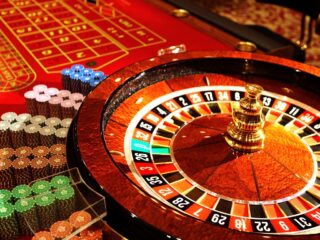
What Kind of Tea Do They Serve at Chinese Restaurants
When it comes to dining at Chinese restaurants, one of the beverages that often comes to mind is tea. Tea has a long-standing tradition in Chinese culture and plays an important role in their cuisine. So, what kind of tea do they serve at Chinese restaurants? Well, the answer can vary depending on the establishment and region.
In many traditional Chinese restaurants, you’ll find that they serve different types of tea, with some being more commonly offered than others. One popular choice is Jasmine tea, which is made by scenting green tea leaves with jasmine flowers. It has a delicate floral aroma and a refreshing taste that pairs well with various dishes.
Another common option is Oolong tea, known for its partially fermented leaves and complex flavors. Oolong teas can range from light and floral to dark and rich, offering a diverse range of tastes to complement different meals. Additionally, some establishments may also offer Green or Pu-erh teas, each with its own distinct characteristics.
While there isn’t a definitive answer to what kind of tea you’ll find at every single Chinese restaurant, these are just a few examples of the teas you might encounter during your dining experience. Exploring the world of Chinese teas can be an exciting journey in itself and adds an authentic touch to your meal.
Green Tea: A Traditional Chinese Favorite
Green tea is a staple in Chinese culture and is widely served in Chinese restaurants around the world. It is known for its delicate flavor and numerous health benefits. Made from the leaves of the Camellia sinensis plant, green tea undergoes minimal oxidation during processing, which helps retain its natural antioxidants.
In Chinese restaurants, you’ll often find a variety of green teas to choose from, such as:
- Dragon Well (Longjing) Tea: This renowned green tea hails from Hangzhou, China, and is famous for its flat leaves and subtle chestnut-like flavor.
- Gunpowder Tea: Named for its tightly rolled leaves resembling gunpowder pellets, this tea has a slightly smoky taste that pairs well with savory dishes.
- Jasmine Tea: Fragrant and refreshing, jasmine tea combines green tea leaves with delicate jasmine blossoms to create a floral aroma and pleasant taste.

Oolong Tea: Rich and Fragrant
Oolong tea sits between green and black teas in terms of oxidation level. Its unique processing technique gives it distinctive flavors that can range from floral to fruity or even woody. Oolong teas are partially oxidized before being rolled into tight curls or twisted shapes.
Chinese restaurants often offer oolong teas like:
- Tie Guan Yin (Iron Goddess) Oolong: Known for its complex flavors and floral fragrance, this oolong tea originates from Fujian Province.
- Da Hong Pao (Big Red Robe): With notes of roasted nuts and a hint of chocolate, this highly prized oolong from Wuyi Mountains is considered one of the best in China.
Chrysanthemum Tea: A Refreshing Herbal Option
If you’re looking for something caffeine-free or simply want a soothing herbal option, chrysanthemum tea is a popular choice at Chinese restaurants. Made from dried chrysanthemum flowers, this floral infusion has a light and slightly sweet taste.
Chrysanthemum tea is often enjoyed for its calming properties and potential health benefits, such as reducing inflammation and promoting relaxation. It can be served hot or cold, making it a refreshing beverage option throughout the year.
In addition to these teas, some Chinese restaurants may also offer other varieties such as jasmine green tea, black tea, or even specialty blends that combine different flavors to create unique taste experiences.
The variety of teas served at Chinese restaurants reflects the rich cultural heritage and diverse preferences of tea enthusiasts worldwide. Whether you opt for the classic green tea, explore the nuanced flavors of oolong teas, or seek a caffeine-free option like chrysanthemum tea, each sip offers a glimpse into the world of Chinese tea culture.
Remember to savor your cup of tea while enjoying your meal at a Chinese restaurant – it’s not just about nourishing your body but also immersing yourself in an ancient tradition that celebrates harmony and balance.
In conclusion, black tea serves as a fantastic beverage choice when dining at Chinese restaurants. Its rich and robust flavors, along with its various varieties, make it an enjoyable drink that pairs well with many dishes. So why not sit back, relax, and savor a cup of black tea during your next visit to a Chinese restaurant?





